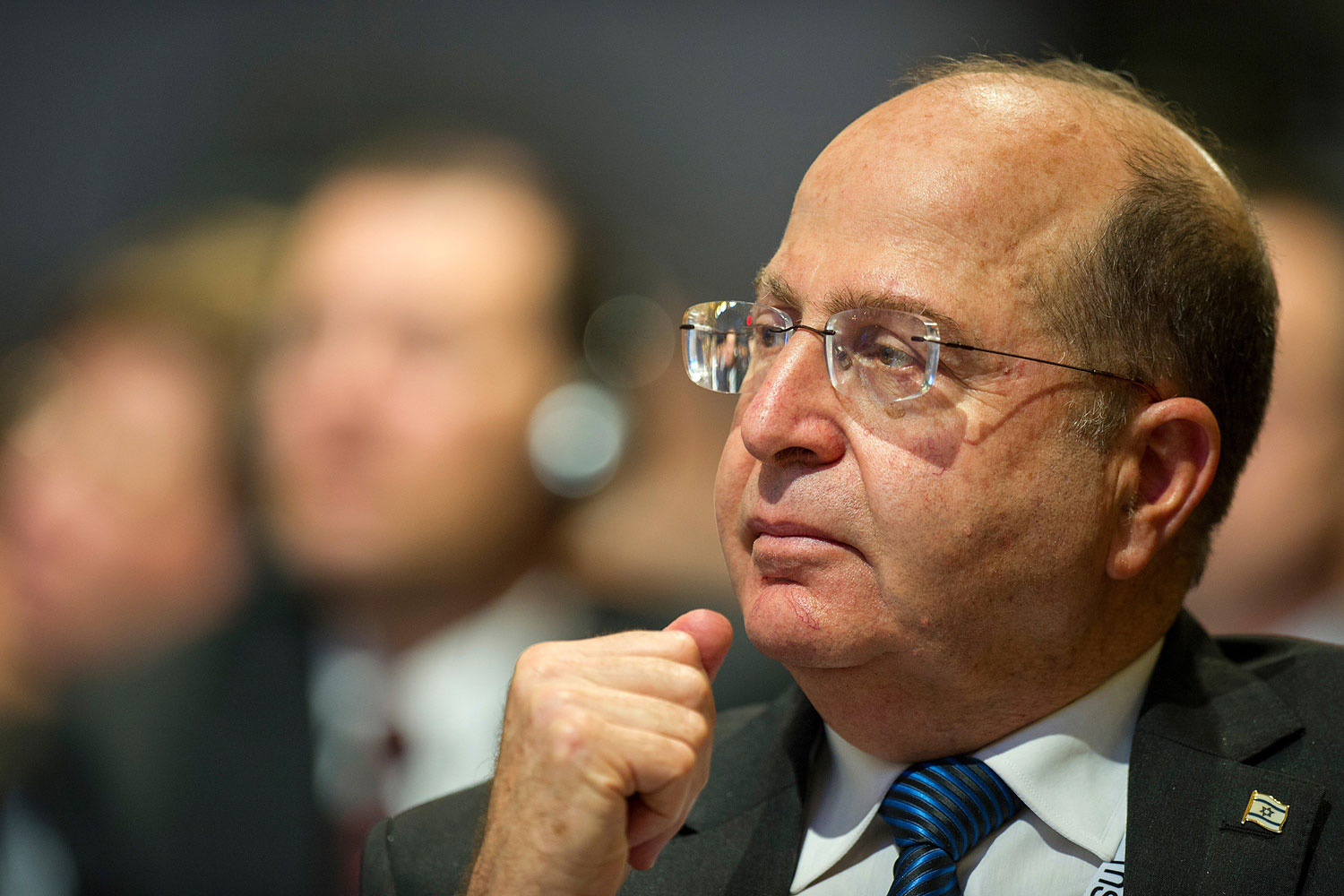
When Iran’s Foreign Minister took the stage at the Munich Security Conference on Sunday, Israel’s Minister of Defense made an unexpected decision. He opted to remain in his seat. The move – or, rather, the lack of a move – made headlines in Israel, where it was read as a diplomatic opening between the Jewish State and the Islamic Republic. In September, Israel’s ambassador to the United Nations, Ron Prosor, stood up and marched out of the General Assembly as Iran’s celebrated new President, Hassan Rouhani, arrived to make his address. On Sunday, Prosor stayed in his seat along with the Defense Minister, the proudly hawkish Moshe “Bugie” Ya’alon.
What does it mean? An innocent might observe that Ya’alon knew he was on the next panel, and didn’t want to hold things up. But there was wide agreement among observers that something deliberate was going on.
“It seems to me that Israel made a public outreach to Iran,” writes Meir Javedanfar in The Iran-Israel Observer, a blog devoted to relations between the two countries. Javedanfar, who was born in Tehran and lectures in Iranian politics at the postsecondary IDC Herzliya sees Ya’alon’s respectful presence before Iranian envoy Mohammad Javad Zarif as “a small positive step forward in order to test the waters. To see how the Iranian side reacts in the future. Israel wins no matter what,” he says. “If Iran reacts positively then it would show that moderation and good will works. If Iran does not react or continues with its rhetoric against Israel then Israel could say that it is the other side that does not want to change, no matter what. This would strengthen Israel’s case against Iran’s nuclear program.”
It’s possible that Zarif warmed to Ya’alon’s presence. When asked on the panel about Iran’s stand on the Palestinian aspirations for their own state, on a portion of the land both Jews and Arabs claim as a homeland, Zarif pointedly disassociated the government he represents (Rouhani’s) from that of its immediate predecessor, Mahmoud Ahmadinejad, notorious for calling for Israel to be wiped off the map, and for questioning the Holocaust.
“Of course we don’t make the same statement the previous government made,” Zarif said. “But [Israeli] policies have deprived the Palestinian people of the most elemental rights. Until this is discussed the crisis is not going away.” As for the Holocaust, Zarif called it “tragically cruel and should not happen again.”
That appeared to complete two of three of the demands given by Israeli Prime Minister Benjamin Netanyahu for leaving before Rouhani spoke at the UN: “When Iran’s leaders stop denying the Holocaust of the Jewish people, stop calling for the destruction of the Jewish State, and recognize Israel’s right to exist, the Israeli delegation will attend their addresses at the General Assembly.”
All in all, Zarif’s remarks were in line with Rouhani’s campaign promise to end the international isolation that Iran suffered under the potent combination of Ahmadinejad’s rhetoric and the U.S.-led economic sanctions aimed at the regime’s nuclear ambitions. Harsh rhetoric still comes out of Iran; in November, Supreme Leader Ayatollah Ali Khamenei referred to Israel as a “the sinister, unclean, rabid dog of the region.” And both Ya’alon and Zarif had plenty of unpleasant things to say about the government of the other. But at least they no longer found the presence of the other too abhorrent to tolerate.
More Must-Reads from TIME
- Why Trump’s Message Worked on Latino Men
- What Trump’s Win Could Mean for Housing
- The 100 Must-Read Books of 2024
- Sleep Doctors Share the 1 Tip That’s Changed Their Lives
- Column: Let’s Bring Back Romance
- What It’s Like to Have Long COVID As a Kid
- FX’s Say Nothing Is the Must-Watch Political Thriller of 2024
- Merle Bombardieri Is Helping People Make the Baby Decision
Contact us at letters@time.com